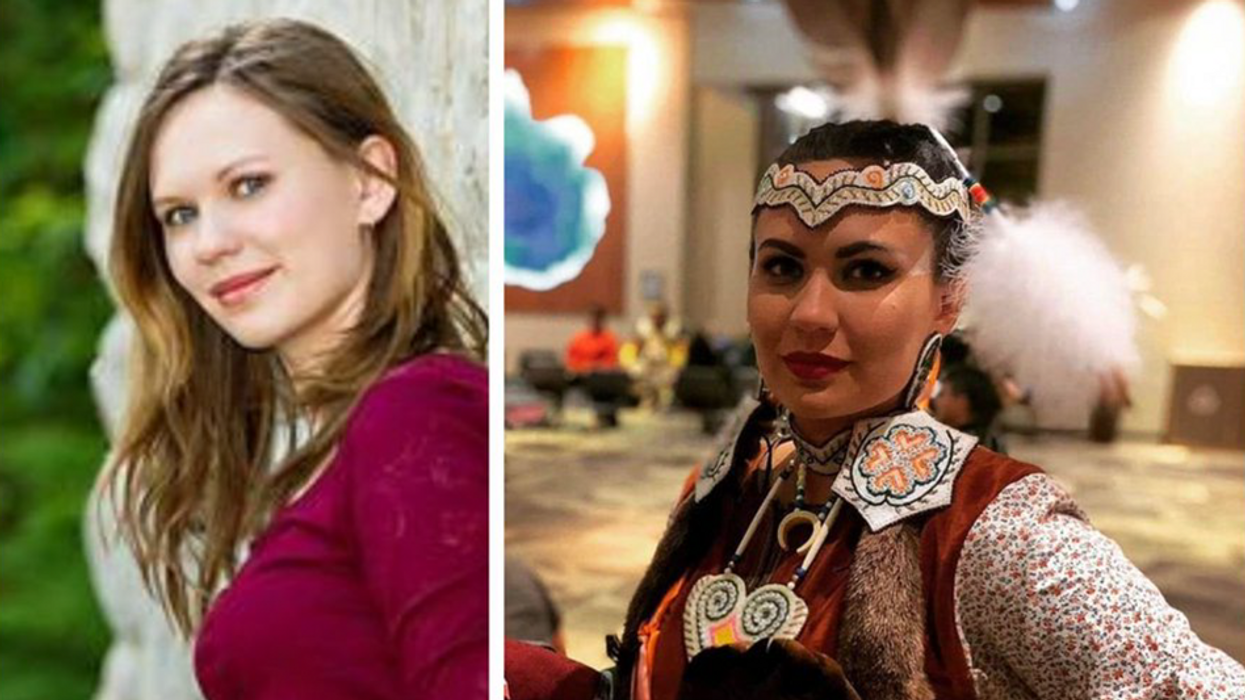
Image Courtesy madison_365 / Twitter

A co-owner of a queer, indigenous artists' collective in Wisconsin, who identifies as "two spirit," has been allegedly exposed as not being Native American despite consistently profiting off the claim, according to website Madison 365.
Kay LeClaire has identified as non-binary, as well as a number of backgrounds including Metis, Oneida, Anishinaabe, Haudenosaunee, Cuban, and Jewish since 2017.
LeClaire, who went by the name "nibiiwakamigkwe," became a leader in the indigenous arts community in Wisconsin while gaining access to a number of institutions, profiting off the assumed heritage. This included artist stipends, a paid residency at the University of Wisconsin, paid speaking fees, and art exhibitions, and she was even named to a Missing and Murdered Indigenous Women Task Force.
LeClaire was allegedly exposed by a person on a forum conducting genealogy as a hobby, who used online records to connect LeClaire's heritage to German, Swedish, and French-Canadian backgrounds.
As well, in a 2017 Facebook post, LeClaire appeared to refer to herself as a "20-something white woman."
The artist gave an apologetic statement to the Madison outlet, stating "I am sorry ... a lot of information has come to my attention since late December. I am still processing it all and do not yet know how to respond adequately. What I can do now is offer change," LeClaire responded.
The activist even influenced a local music venue to change its name in 2020, citing that it was racially/ethnically insensitive. The venue, called the Winnebago, named after the street on which it resides, drew criticism because the owner was white. After a few months, LeClaire and other activists convinced the owner to change the name to the Burr Oak, but not without scolding the venue for its apparent insensibilities.
“I’m glad the name is going, but I’m not happy the institutions that allowed it to be stolen in the first place remain," LeClaire said. "For over 500 years, Indigenous Peoples have not controlled our narratives and representations," she added.
Now, LeClaire says that her "efforts will be towards reducing harm by following the directions provided by Native community members and community-specified proxies," adding that she will not be "using the Ojibwe name given to [her] and [is] removing [herself] from all community spaces, positions, projects, and grants and will not seek new ones."
A woman named Kristie Goforth, who considered LeClaire a friend, says white people in the region "crave" diversity and are easily swept up in the notion of it.
“There’s this appetite in Madison to just really want [diversity] and want to believe it so badly,” Goforth claimed, adding that "it’s like a craving for it. We’re craving culture here."
LeClaire has also vowed to return any "culturally-related items" she has received over the years.
Andrew Chapados